The Prince in Brittany ... Nantes & St Nazaire ..
Simple Mission; Gets More Complicated?
At Dunblane Cathedral amongst the many hundred visitors was one Nigel Willis, who knows a thing or two about St Nazaire, and the Prince's departure from there in 1745. He'd been in contact with Nazairiennes on a wholly different subject - to discuss the founder of the town's first shipyard using metal hulls in 1862, Chantier John Scott, a Scot of course. The Empress Eugenie [named after the wife of Napoleon III in 1865] is pictured below! But Nigel actually knew a man who knew a great deal more - Jean Cevaer. And it was Jean your correspondent went to meet.
click to enlarge all the images
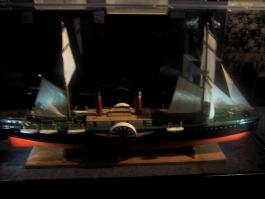 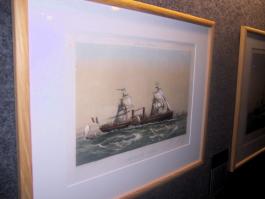
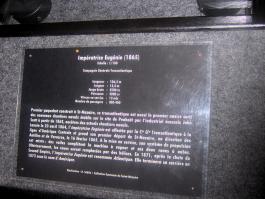 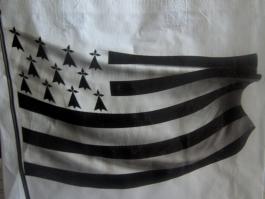
The mission was simple: Find a location and a crew of volunteers to enable an exhibition of the Prestonpans Tapestry to be presented in Nantes/ St Nazaire. But Jean was determined from the outset, as other commentators had already been by email, to emphasise that the Prince set out from Brittany in particular not France in general! Today, to make matters even more complex, St Nazaire is no longer even part of the administrative region of Brittany having been redesignated within Loire Atlantique by the Vichy Government in 1941.
This is clearly a sore point for many a Breton but one on which for the immediate future it's surely most advisable for the Trust to refrain from comment! We'll just show the flag ... as above.
The house where the Prince stayed prior to sailing to Scotland is well known locally ...
... but is no longer to be seen. In 1745 it was the home of seneschal Galliot de Cran. During World War II Allied bombs destroyed most of old St Nazaire in order to debilitate the notorious German submarine pens there. The house in question disappeared. But it's original frontage and location are well known on Rue de la Rampe - shown below with today's location and structure. Those pictured in the exact spot today are Hubert Chemereau, Breton historian par excellence [left] and Jean Cevaer [right]. The street corner is also shown which stands opposite those infamous submarine pens! Not too sure what the Prince would have made of them - yet more trouble from Germans?
N.B. The Prince's overnight accommodation wasn't included on Jenny Unwin's Tapestry panel shown beneath since the evidence from Hubert and Jean has only just this week come to light.
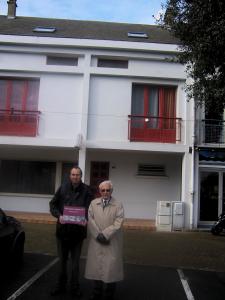 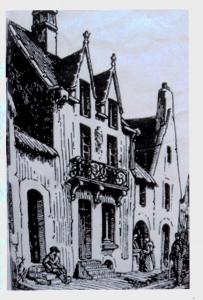 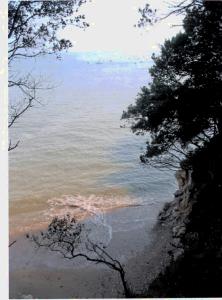
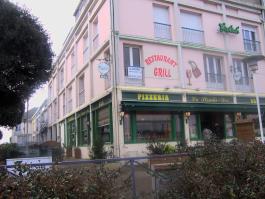 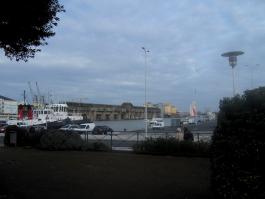
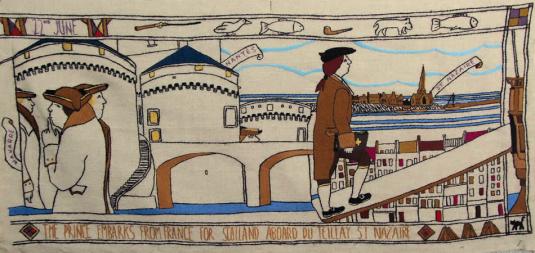
Nantes Castle and Hotel de Ville de St Nazaire
Jean had arranged appointements with the senior cultural managers in both Nantes and St Nazaire to explore where and when the Tapestry might be displayed. Whilst Mme Marie-Hélène Joly, Directrice at Nantes Castle was fascinated with the artwork [an embroiderer herself] there was no opportunity in the forseeable future for such a display there. The same applied to St Nazaire Maritime Museum which shows a model of John Scott's first ship, and also of HMS Campbelltown which rammed destroyed St Nazaire's massive dry dock on World War II's most daring Commando raid - Operation Chariot.
But Hope & Ambition spring eternal. All are convinced that the mission to bring the Tapestry to Nantes & St Nazaire is most worthwhile and that, as has been the experience across Scotland to date, the less obvioous/ less traditional venue is the most likley. Thoughts are already turning to Le Grand Cafe and the Cathedral in St Nazaire. [And we're expecting suggestions from M. Hulot who took a Summer Holiday on the beach at St Marc district of St Nazaire - pictured just outside La Hotel de la Plage!]
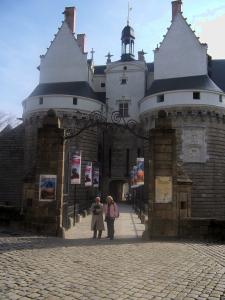 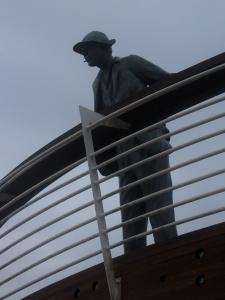
________________________________________________________________
Footnote extraordinaire!
In St Nazaire the word is that the Prince departed by fishing boat near Chemoulin [pictured above] not directly aboard du Teillay as the Tapestry and many historians assert. This version of the tale has the Prince reaching du Teillay at La Belle Isle. The port at the time by Charles Belvaire is pictured below with the original church as in the tapestry panel, and of course the house the Prince departed from.
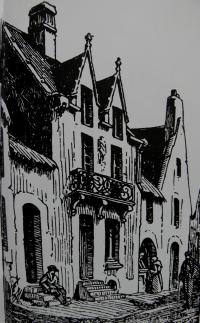 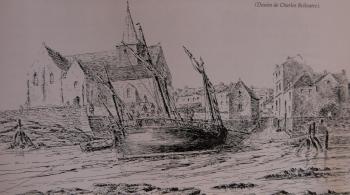
Published Date: February 17th 2011
|





